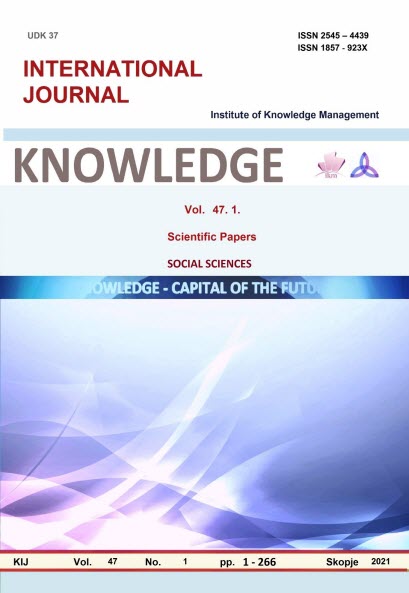US INFLUENCE IN THE REPUBLIC OF NORTH MACEDONIA AFTER THE PERIOD OF RENAMING
US INFLUENCE IN THE REPUBLIC OF NORTH MACEDONIA AFTER THE PERIOD OF RENAMING
Author(s): Ilche DimovskiSubject(s): Business Economy / Management
Published by: Scientific Institute of Management and Knowledge
Keywords: geostrategic interests; NATO; Western Balkans; USA; R.N. Macedonia
Summary/Abstract: The complex set of historical and political processes between the countries of the Western Balkans, as well as the absence of the EU from the region, complicates the process of building democratic and political capacities in these countries. The United States has a complex political approach to the Western Balkans, without having an exclusive ally in this part of the region. Although the region does not seem to be at the top of US policy priorities at the moment, the Western Balkans play an important role in its interests, especially when it comes to security issues, which have always been a top priority for the US administration. The public in the Republic of North Macedonia is still emotional about the process of changing the constitutional name, and the Prespa Agreement, although a closed topic for the US administration, at least judging by the last move of President Biden, is still not fully accepted, not only by the population, but also among some experts. Some critics comment on the distrust of the process "vis a vis" the constant blockades of the pre-accession negotiations with the EU, despite the name change, which by the way according to the amendments to the Constitution should be implemented in practice in parallel with the opening of EU negotiation chapters. This begs the questions: What is the US position on North Macedonia's strategic interests? Does and in what way does the United States influence North Macedonia through NATO? What are the benefits and prospects for North Macedonia from NATO membership? The purpose of this paper is to explain the US attitude towards North Macedonia from a geostrategic point of view by applying descriptive analysis. In 2008, after the Greek veto on Macedonia's membership in NATO, a Declaration on Strategic Partnership and Cooperation was signed between the United States and Macedonia, with which the United States guarantees the security of Macedonia, but without meaning a replacement for NATO membership. The Declaration is one of the most important agreements for North Macedonia, which emphasizes, among other things, the strategic commitment of both sides to Macedonia's integration into NATO and the EU, making the United States the only strategic partner and supporter (of the great powers) of Macedonia in its EU and NATO aspirations.Finally, in 2020, through the North Macedonian Embassy in Washington, the instrument for joining the North Atlantic Treaty was deposited, with which North Macedonia officially became a member of NATO.
Journal: Knowledge - International Journal
- Issue Year: 47/2021
- Issue No: 1
- Page Range: 249-255
- Page Count: 7
- Language: Macedonian

